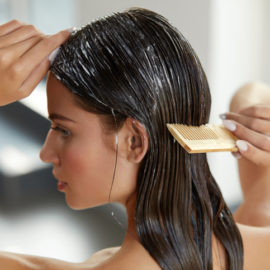The coronavirus pandemic has shifted priorities all over the world. During this unprecedented crisis, there is more emphasis than ever on caring for our health and caring for each other. However, this emphasis on care isn’t just about physical health; it’s about mental health too. According to market research conducted by Mintel, 44% of adults in the US have more highly prioritized mental well-being since the start of the COVID-19 crisis. In light of these seismic shifts, what is personal care after the global pandemic?
Generally, there is a shift towards the notion of self-care; consumers look for multi-functional wellness essentials for their body and mind. Equally, they are seeking out products that support immune health; it’s the benefit that 58% of US women would want an ideal supplement to offer. Consumers want products that are safe and clean, and suitable for long-term use.
That said, the notion of ‘self’ shouldn’t be overemphasized in this re-thinking of personal care. In times of crisis, we’re brought closer together and consumers want beauty that cares for the planet and communities. Therefore, natural and eco-friendly ingredients remain a priority, especially in light of anxieties that coronavirus was accelerated by human activity. Here, we explore these parallel trends and their key attributes.
Content
Self-care with science
Even before the pandemic, one of the most prominent trends observed by Mintel was the drive towards natural ingredients and skepticism about the safety of artificial additives. This, in turn, has led to the rise of clean label products. However, considering new concerns around product safety, brands need to look to science to reassure consumers. Certainly, this tendency is reflected in wider society, where politicians are increasingly flanked by scientific advisers as opposed to eschewing “the experts” in favor of populism.
Therefore, ingredient transparency is key. In a climate of uncertainty, consumers want reassurance: they want to know that anything that comes into contact with their bodies is safe, tested, and concretely beneficial. The clean beauty movement will shift to be more transparency-led as consumers look to the experts for guidance.
Equally, there will be a shift towards immunity-driven, hygienic beauty. Consumers will look for products with antimicrobial properties or immune-boosting benefits. In addition, touchless applications will gain popularity, as consumers want on-the-go formulas they can apply without touching their faces. Mintel also expects that we’ll see brands leaning towards holistic well-being claims, including sleep enhancement, stress reduction, and energy-boosting.
Caring for nature and communities
This trend towards self-care may seem introspective, but if we seek to examine what is personal care post-pandemic, we can see it’s a two-way street. People are concerned with their personal well-being, but their concern for the environment remains. Last year, Mintel’s Trends Driver ‘Surroundings’ highlighted that people feel more connected to their environment, with 75% of adults agreeing that they try to act in a way that isn’t harmful to the environment.
Sustainability will be of even greater concern after the pandemic. Many consumers view the crisis as a natural disaster, aligning the pandemic with concerns about climate change. In response, personal care brands will need to work harder to demonstrate their eco-credentials. Organic ingredients or biodegradable packaging isn’t enough; consumers will scrutinize the entire supply chain.
This concern isn’t only environmental; it’s also community-led. The global pandemic has exposed inequalities in society that consumers what to see remedied, with more focus on people over profit. Consumers – particularly millennials – want brands to treat employees and partners ethically, ensuring the Earth’s rich resources are shared (Mintel, 2020). This is why Access Benefit Sharing (ABS) projects are becoming increasingly ubiquitous, as brands understand that corporate responsibility is of vital importance.
What is personal care? Reimaging the beauty industry
So, in the context of the global pandemic, what is personal care? Personal care is caring for our bodies and minds, but it’s also about caring for our planet and communities. Provital recognizes that taking care is the force that brings us together. After the coronavirus crisis, it will be a commitment to people, communities, and the environment that will take the BPC sector forward. By combining nature and science, we can grow together and help everyone express their beauty. With care, we can spread positivity and move forward.
No comments yet
There are no comments on this post yet.





Leave a comment